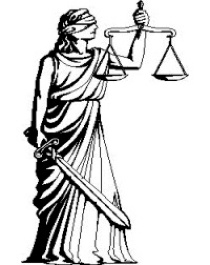
2+2=4 would still be correct.
But getting it incorrectly would not be a matter of moral judgment.
Neither would crime.
What would be the basis of determining whether an act is a crime?
We would still have on our books the prohibition of all actions that cause harm to another person or the other person’s property.
The reason we have these laws is not about morality.
The law defines the conduct by the circumstances.
For example, taking another person’s life is sometimes prohibited and sometimes not.
Killing soldiers from nations or from groups of people our nation has decided to target is legal.
So is killing in self-defense.
As is executing those who have been convicted of heinous crimes.
But if the trier of facts determines that one has taken a life intentionally, then that person has broken the law.
Instead of casting moral judgment upon the “suspect” or “defendant” we could, upon their arrest and charge, take them to an inquiry.
A person with the proper legal and logical background (the inquirer) could ask this person and witnesses who volunteer to come forward what happened.
After hearing the evidence and viewing any appropriate documents and visual aids, the inquirer would decide if the crime was actually committed.
If they decide there was no crime, they allow the suspect to leave.
If they decide there was a crime, they would designate the crime in a general manner (ex: “homicide” instead of “murder,” “assault” rather than “aggravated assault,” etc.)
The results of the inquiry would be forwarded to a group of experts on psychological, social and other disorders.
The suspect would choose one of the experts.
The experts would ask questions of the suspect and others familiar with them and the people harmed by the conduct.
They would then reach a majority consensus as to what problems the suspect had in their background that (a) contributed to their conduct and (b) could be addressed through some type of rehabilitation.
They would also state the length of time, if any, the suspect should be detained and where detained and only do so if the person, from their point of view, would likely harm others or the property of others.
As for constitutional concerns about the right to a jury trial, suspects would be given the choice of this type of process as an alternative to the usual judicial system.
We may not be able to rehabilitate all of those who break the law, but we need to rehabilitate a system that casts blame rather than seeks solutions to one of our society’s biggest problems.
 RSS Feed
RSS Feed
